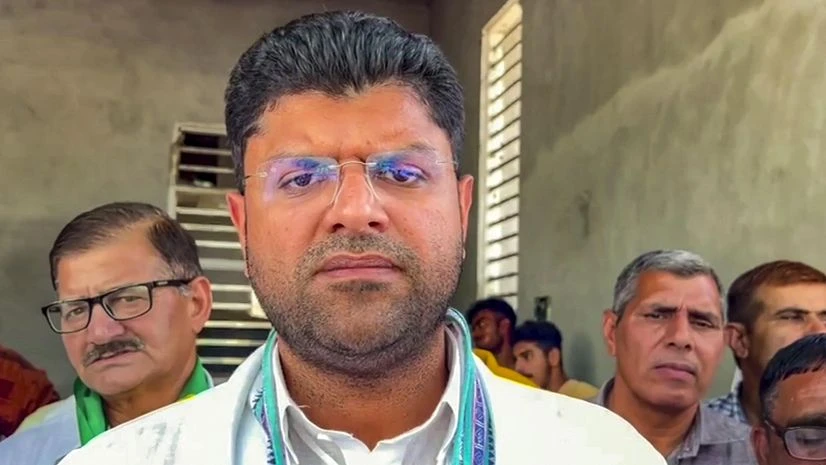)
JJP leader Dushyant Chautala (Photo: PTI)
Except for Arjun Chautala who is contesting from the Rania constituency, the remaining members of the Chautala family in the Haryana Assembly elections are falling behind in the race. Contrary to exit polls, the Bharatiya Janata Party (BJP) is proving to be a formidable opponent to the Congress in the state. The Indian National Lok Dal (INLD) and the Jannayak Janata Party (JJP), both led by the Chautalas, appear to be heading toward significant losses based on current trends.
As of 2.45 pm, data from the Election Commission indicates that the BJP is ahead in 49 seats, while the Congress is leading in 36. The INLD, which previously held power in Haryana, is currently leading in just two seats.
Arjun Chautala, son of INLD leader Abhay Chautala, is in the lead in Rania. He is leading the race by a vote margin of 4191. Trailing behind him is Congress’ Sarv Mitter.
However, Dushyant Chautala, whose JJP was pivotal in the 2019 Assembly elections, is currently trailing in Uchana Kalan, with Congress leader Brijendra Singh ahead in that constituency with a mere vote margin of 130.
Abhay Singh Chautala is also behind in Ellenabad, where Congress’s Bharat Singh Beniwal is leading by a vote margin of 14,861. Additionally, Dushyant Chautala’s brother, Digvijaya Singh Chautala, is trailing in the Dabwali constituency of Sirsa.
Meanwhile, Sunaina Chautala of the INLD is falling behind in Fatehabad, with BJP’s Dura Ram leading in that area.
The JJP-INLD split
The Jannayak Janta Party (JJP) was formed in 2018 following a division within the Indian National Lok Dal (INLD). Dushyant Chautala’s father, Ajay Singh Chautala, leads the JJP, while the INLD is headed by OP Chautala, a five-time former chief minister of Haryana.
OP Chautala is also the father of Abhay Singh, and his father was Chaudhary Devi Lal, who served as India’s Deputy Prime Minister. The split was driven by internal conflicts within the Chautala family.
Both parties aspire to honour the political legacy of Devi Lal but are at risk of fading away in Haryana’s political landscape. In the 2024 Lok Sabha elections, both parties garnered less than 2 per cent of the total vote share.
First Published: Oct 08 2024 | 3:28 PM IST

































